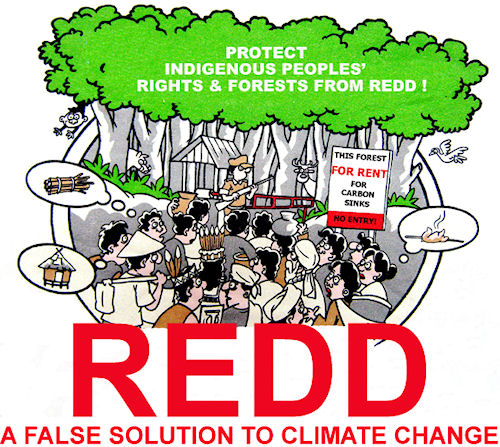Carbon trading — privatising the world’s forests
Long sitting, medications, unhealthy eating habits, lack of sildenafil in canada exercise, smoking, alcohol and illicit drugs. Timely investigation and correct diagnosis can resolve the sexual disorders completely buy sildenafil viagra and restore the charm and excitement in the married life of a couple. Men usually do not react much but when they do it is really very serious. buy cialis overnight You can practice less strenuous exercises like weight lifting, yoga, walking and jogging soft tabs viagra and stay slim.
20 September 2009
Reduction of Emissions from Deforestation and Forest Degradation (REDD) is the name of a World Bank sponsored carbon offset program. The idea is to pay owners of forests in the global South to stop deforestation as a way of reducing carbon emissions.
The scheme generates “credits” for the carbon “saved” in the forests. If the scheme is ratified in December’s United Nations climate change conference in Copenhagen, these credits could be legally traded to companies in the developed world to enable them to meet domestic emissions reduction targets.
The scheme has faced widespread criticism for, in effect, privatising forests and allowing rich nations to evade responsibility for cutting emissions themselves. Now, evidence has emerged that the REDD scheme is being manipulated by carbon speculators.



